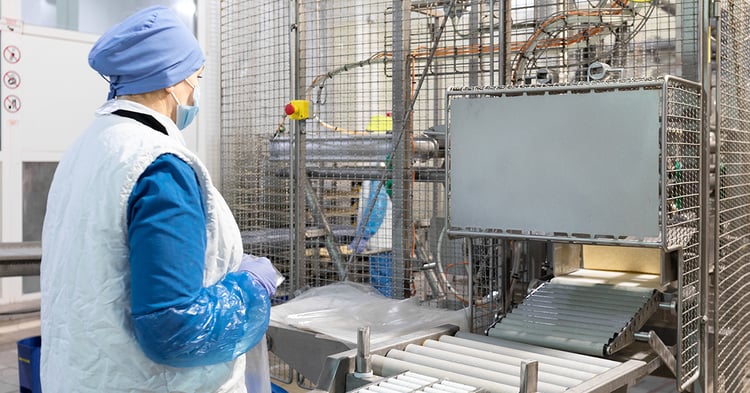![]()
The future of MES is being shaped by trends like AI, big data analytics, and Industry 4.0, all aimed at improving operational efficiency, reducing downtime, and fostering a sustainable manufacturing process. With connected systems becoming the norm, cybersecurity has become crucial, especially with IoT integration. A skilled workforce adept in data analytics and IoT is necessary, and companies should invest in training and education partnerships. Predictive analytics in MES enables real-time monitoring, optimized scheduling, and a more agile supply chain, positioning manufacturers to meet modern demands effectively. Embracing these advancements will help manufacturers remain competitive and resilient.
Table of Content
- Key Trends Shaping the Future of MES
- Cybersecurity Challenges in Manufacturing Technology
- Preparing for Change: Skills and Training for the Next Generation of MES
- Predictive Analytics: Enhancing Decision-Making in MES
- Take the Next Step in Manufacturing Excellence with LiveTracking
- Glossary
- Take the Next Step in Manufacturing Excellence with LiveTracking
Unlock Your MES Potential: Experience the impact of predictive analytics on your production efficiency with our 30-day free demo.
Key Trends Shaping the Future of MES
- Artificial Intelligence and Machine Learning: These technologies are being increasingly integrated into MES to automate routine tasks, enhance quality control, and predict equipment failures.
- Big Data Analytics: The vast amounts of data generated by production processes are being harnessed through advanced analytics to derive actionable insights and improve overall performance.
- Interconnectivity and Industry 4.0: The push towards Industry 4.0 has intensified the need for MES to integrate seamlessly with other systems, including Enterprise Resource Planning (ERP) and Customer Relationship Management (CRM).
- Sustainability Initiatives: As sustainability becomes a priority, MES is being utilized to monitor energy use and waste, contributing to greener manufacturing practices.
These trends highlight the significance of adapting to technological advancements in order to maintain a competitive edge. Organizations that embrace these changes will likely experience improved efficiency, lower operational costs, and enhanced customer satisfaction.
Moreover, the integration of Artificial Intelligence and Machine Learning into MES not only streamlines operations but also fosters a culture of continuous improvement. By analyzing historical data, these technologies can identify patterns and suggest optimizations that human operators might overlook. This capability allows manufacturers to not only react to issues as they arise but also proactively implement changes that enhance productivity and reduce downtime. Furthermore, the predictive maintenance enabled by these technologies can significantly extend the lifespan of machinery, ultimately leading to substantial cost savings.
In addition to these advancements, the emphasis on Big Data Analytics is transforming how decisions are made on the factory floor. With real-time data analysis, managers can make informed decisions quickly, responding to market demands and operational challenges with agility. This level of responsiveness is crucial in today’s fast-paced environment, where consumer preferences can shift rapidly. Coupled with the interconnectivity fostered by Industry 4.0, companies are finding themselves better equipped to collaborate across departments and with external partners, leading to a more integrated and efficient supply chain.
Cybersecurity Challenges in Manufacturing Technology
As manufacturing technology increasingly relies on connected systems, the cybersecurity risks associated with these innovations have grown. Cybersecurity challenges are one of the most pressing concerns for organizations implementing MES. With more devices and machines connected to the internet, the attack surface for cyber threats expands exponentially.
Manufacturers are at risk of various cyber threats, including ransomware, malware attacks, and data breaches. A successful cyberattack can compromise sensitive production data, halt operations, and lead to significant financial losses. Therefore, organizations must prioritize robust cybersecurity measures when implementing MES.
Implementing a comprehensive cybersecurity strategy involves several key components:
- Regular Security Assessments: Conducting periodic assessments can help identify vulnerabilities and ensure that security measures are effectively implemented.
- Employee Training: Ensuring that all employees are trained in recognizing and responding to cyber threats is critical in mitigating risks.
- Data Encryption: Encrypting sensitive data both in transit and at rest can protect it from unauthorized access.
- Incident Response Plans: Developing and testing incident response plans can prepare organizations for potential cyber incidents, minimizing damage and recovery time.
Moreover, the integration of Internet of Things (IoT) devices in manufacturing processes further complicates the cybersecurity landscape. These devices often lack robust security features, making them prime targets for cybercriminals. As IoT devices collect and transmit vast amounts of data, the potential for data interception and exploitation increases. Manufacturers must not only secure their traditional IT infrastructure but also ensure that their IoT devices are protected through updated firmware, secure configurations, and continuous monitoring.
Another critical aspect of cybersecurity in manufacturing is the need for collaboration across the supply chain. Manufacturers often rely on third-party vendors for various components and services, which can introduce additional vulnerabilities. Establishing strong cybersecurity standards and practices with suppliers is essential to create a resilient manufacturing ecosystem. This includes conducting thorough due diligence on vendors, requiring compliance with cybersecurity protocols, and fostering open communication about potential risks and incidents. By building a culture of cybersecurity awareness and collaboration, manufacturers can better safeguard their operations against evolving cyber threats.
Preparing for Change: Skills and Training for the Next Generation of MES
With the constant evolution of MES, the demand for a skilled workforce adept in the latest technologies is on the rise. To prepare for the future, organizations must invest in the training and development of their employees.
Training programs should focus on both technical skills, such as data analytics, IoT implementation, and programming, as well as soft skills like problem-solving and collaboration. Additionally, offering continuous learning opportunities will help employees stay updated on the latest technological advancements and industry trends.
Collaboration with educational institutions can also play a pivotal role in shaping the future workforce. By partnering with universities and vocational training centers, organizations can ensure that curricula align with industry needs, preparing students for careers in modern manufacturing environments.
Moreover, mentorship programs within organizations can bridge the gap between experienced professionals and newcomers. These initiatives not only foster knowledge transfer but also create a supportive environment where employees feel empowered to ask questions and seek guidance. By pairing seasoned experts with younger talent, companies can cultivate a culture of continuous improvement and innovation, essential for navigating the complexities of MES.
Additionally, embracing a diverse workforce can enhance creativity and problem-solving capabilities. Different perspectives can lead to innovative solutions that drive efficiency and productivity in manufacturing processes. Organizations should actively promote inclusivity in their hiring practices and create an environment where all voices are heard, ensuring that the next generation of MES professionals is not only skilled but also equipped to tackle the challenges of an ever-evolving industry landscape.
Predictive Analytics: Enhancing Decision-Making in MES
Predictive analytics has emerged as a powerful tool for enhancing decision-making within MES. By analyzing historical data and identifying patterns, organizations can anticipate outcomes and make informed decisions that improve operational efficiency.
The application of predictive analytics allows for:
- Real-Time Monitoring: Continuous analysis of production metrics enables organizations to identify trends and deviations from standard operating conditions.
- Optimized Scheduling: Using predictive models to forecast demand can help in scheduling production runs more effectively, minimizing downtime and maximizing resource utilization.
- Quality Improvements: By analyzing data from quality control processes, manufacturers can proactively address quality issues, reducing waste and increasing customer satisfaction.
The capability to leverage predictive analytics effectively places organizations at a significant competitive advantage. As the manufacturing landscape evolves, the integration of predictive analytics in MES will become essential for sustained success.
Moreover, predictive analytics can significantly enhance supply chain management by enabling organizations to predict supply disruptions and demand fluctuations. By utilizing advanced algorithms and machine learning techniques, manufacturers can create a more resilient supply chain that adapts to changing market conditions. This proactive approach not only helps in maintaining inventory levels but also fosters stronger relationships with suppliers, as organizations can communicate more effectively about their needs and expectations based on predictive insights.
Additionally, the implementation of predictive analytics in MES can lead to improved workforce management. By analyzing employee performance data and production workflows, organizations can identify areas where training or process adjustments are needed. This insight allows for targeted interventions that enhance employee productivity and engagement, ultimately leading to a more skilled workforce capable of meeting the demands of modern manufacturing. As organizations continue to embrace digital transformation, the role of predictive analytics in shaping a more agile and responsive manufacturing environment will only grow in importance.
In conclusion, the future of Manufacturing Execution Systems is brightly aligned with technological advancements, changing workforce dynamics, and the need for robust cybersecurity solutions. As manufacturers navigate these changes, embracing emerging trends and preparing for challenges will be key to unlocking the full potential of MES in enhancing operational efficiency and competitiveness in the marketplace.
Take the Next Step in Manufacturing Excellence with LiveTracking
As you consider the future of Manufacturing Execution Systems and the transformative power of predictive analytics, why not experience the benefits firsthand? LiveTracking invites you to schedule a quick discovery call to explore how our solutions can enhance your operational efficiency. With a proven track record of delivering a 15% increase in equipment efficiency, our free 30-day full demo offers you the opportunity to see the difference in real-time. Don't miss out on the chance to simplify the tracking of critical statistics and stay ahead in the competitive manufacturing landscape. Schedule a quick Demo call with us in the next two weeks and unlock the full potential of your MES.
Secure Your Future in Manufacturing: Discover how our MES solutions can enhance your operations and protect against cyber threats—schedule a call today.
Glossary
- MES (Manufacturing Execution System): Software system that controls and manages production operations on the factory floor.
- Artificial Intelligence (AI): Technology that enables machines to perform tasks that require human intelligence.
- Machine Learning (ML): A subfield of artificial intelligence that allows machines to learn and improve autonomously.
- Big Data Analytics: The process of examining large amounts of data to discover patterns and trends.
- Industry 4.0: An industrial revolution that incorporates advanced digital technologies to automate production processes.
- Cybersecurity: Practices and technologies to protect information systems from cyberattacks.
IoT (Internet of Things): A network of interconnected physical devices that collect and exchange data. - Predictive Analytics: The use of historical data and statistical techniques to predict future outcomes.


